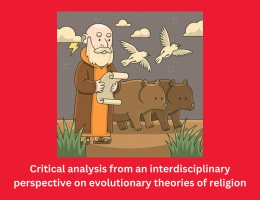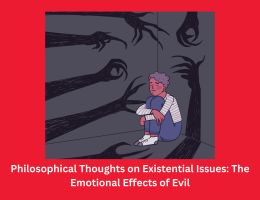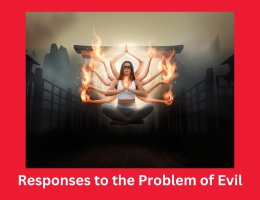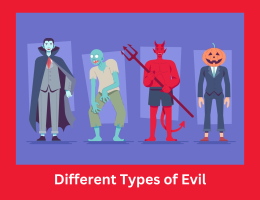
The Evidential Problem of Evil: Explores whether the amount and distribution of evil and suffering in the world constitute evidence against the existence of a benevolent deity
- By admin --
- Friday, 08 Mar, 2024
The Evidential Problem of Evil presents a distinct challenge to the notion of a benevolent deity by questioning whether the observable amount and distribution of evil and suffering in the world provide evidence against the existence of such a deity. Unlike the Logical Problem of Evil, which focuses on the logical compatibility of evil with the attributes of God, the Evidential Problem deals with the empirical evidence derived from the existence and prevalence of suffering in the world.
Central to the Evidential Problem of Evil is the observation that evil and suffering appear pervasive and often indiscriminate across the human experience. From natural disasters to disease, from human cruelty to the suffering of innocent beings, instances of pain and hardship seem to abound in the world. This raises profound questions about the character of a deity who is traditionally conceived as benevolent, or wholly good.
The argument of the Evidential Problem can be framed in several ways, but a common formulation might proceed as follows:
- If a benevolent deity exists, then that deity would desire to prevent unnecessary suffering.
- If an omnipotent deity exists, then that deity would have the power to prevent unnecessary suffering.
- There is unnecessary suffering in the world, as evidenced by the existence of gratuitous pain, seemingly disproportionate suffering, and instances where suffering appears not to contribute to any greater good.
- Therefore, the observed presence of unnecessary suffering provides evidence against the existence of a benevolent and omnipotent deity.
This argument challenges the coherence of the concept of a benevolent deity in light of the reality of widespread and seemingly gratuitous suffering. It suggests that the existence of such suffering is incompatible with the existence of a deity who is both benevolent and omnipotent, as traditionally conceived.
One way to appreciate the force of the Evidential Problem is to consider the scale and intensity of suffering observed in the world. Natural disasters like earthquakes, hurricanes, and tsunamis can cause immense destruction and loss of life, often affecting large numbers of innocent individuals. Diseases and epidemics can ravage entire populations, causing untold pain and anguish. Human actions, such as war, oppression, and exploitation, further contribute to the proliferation of suffering across the globe.
Moreover, the seemingly random and arbitrary nature of much suffering raises difficult questions about its purpose and justification. Why do innocent children suffer from terminal illnesses? Why do natural disasters strike indiscriminately, affecting both the virtuous and the wicked? These questions challenge conventional notions of divine justice and providence, casting doubt on the benevolent intentions of a deity who permits such suffering to occur.
In response to the Evidential Problem of Evil, theologians and philosophers have proposed various explanations and defenses. One common response is to appeal to the concept of free will, arguing that much of the suffering in the world arises from human choices and actions. According to this view, God grants humans the freedom to make moral decisions, even if it results in negative consequences such as suffering. While this response may account for some instances of moral evil, such as acts of cruelty and injustice, it does not fully address the problem of natural evil, which appears to be beyond human control.
Another response is the notion of soul-making or theodicy, which suggests that experiencing and overcoming suffering can lead to spiritual growth and moral development. From this perspective, suffering serves a higher purpose in the divine plan, contributing to the formation of virtuous character and the cultivation of empathy and compassion. While this response offers a potential explanation for the existence of suffering, it may not fully justify the extent and severity of the suffering observed in the world.
Additionally, some philosophers have proposed the concept of epistemic humility, acknowledging the limitations of human understanding in comprehending the purposes and intentions of a divine being. According to this view, the existence of suffering may remain a mystery beyond human comprehension, and attempts to reconcile it with the existence of a benevolent deity may ultimately fall short.
Despite these responses, the Evidential Problem of Evil continues to challenge believers and skeptics alike, prompting ongoing reflection and debate. The observation of widespread and seemingly gratuitous suffering in the world raises profound questions about the nature of divinity, the meaning of suffering, and the limits of human understanding. In confronting the evidential challenge posed by evil and suffering, humanity grapples with fundamental questions about the nature of existence and the mystery of divine providence.





